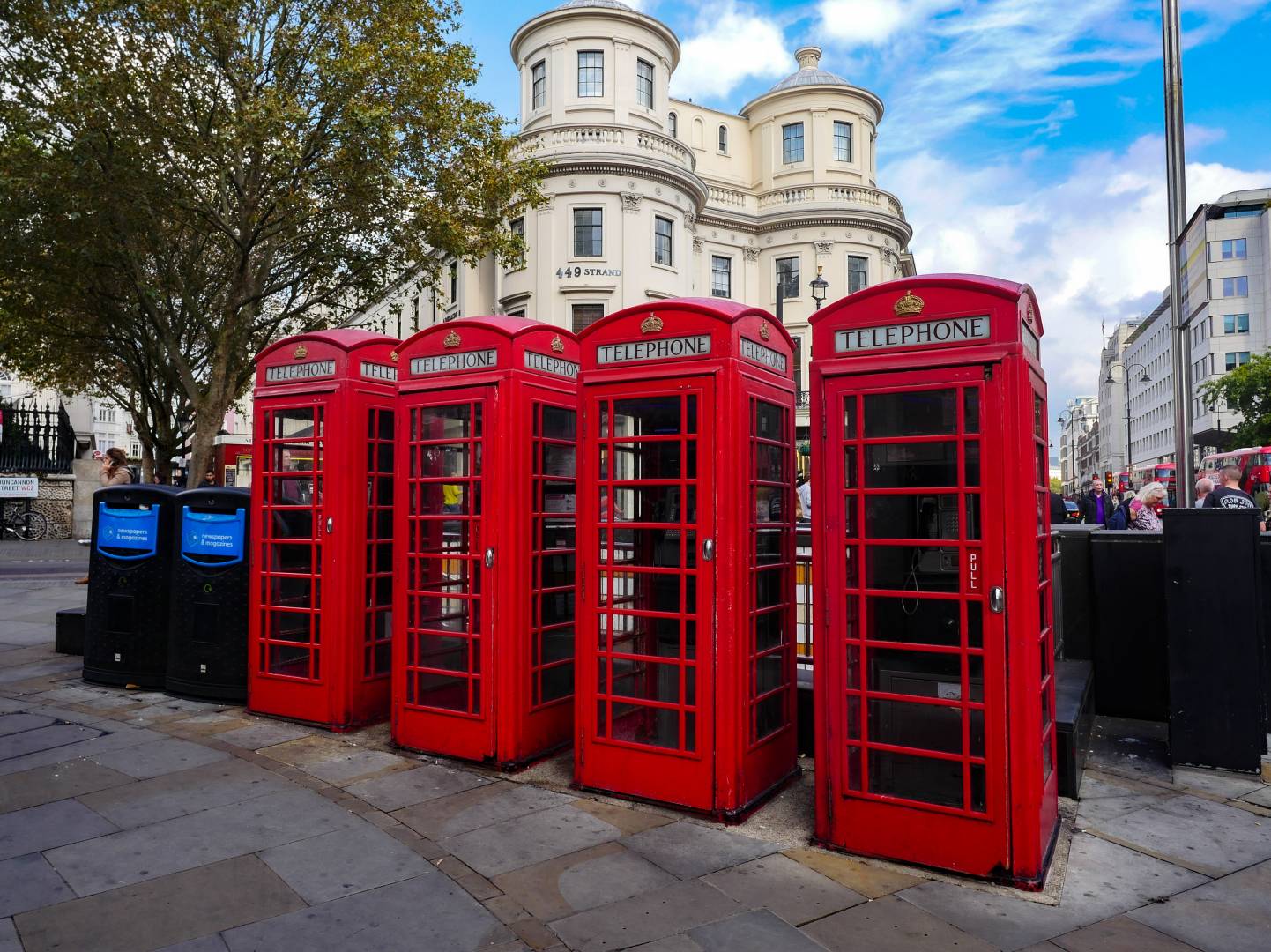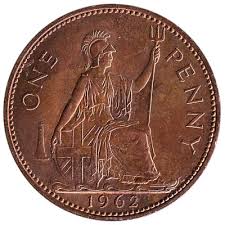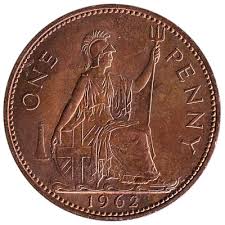The Cold War is but a memory these days. At the time, though, especially during the Cuban missile crisis of October 1962, it was very real and didn’t feel especially cold. In fact, it was pretty hot.
Much attention was paid in those days to home nuclear bunkers and stockpiling of food. Most people thought that a cataclysmic nuclear war was more than a 50:50 possibility and it was supremely worrying. Forget climate change, this was the real McCoy.

All the more encouraging, therefore, to find that Britain’s plans for war were well honed. They hinged on a red telephone box, four pennies and the ever-obliging Automobile Association. A punctured tyre was, however, the least of the government’s worries.

Pennies from Hell — just four old pennies stood between war and peace in 1962
The low-tech solution is recounted in Peter Hennesey’s new book, Winds of Change: Britain in the
Prime Minister Harold Macmillan’s finger was crucial to the pressing of the nuclear button, so what to do if the PM was on
Hello, PM calling
The solution? Equip the official car with a radio link. Simple, it sounds, but this was before the age of car phones and the decision was the ask the Automobile Association to install the equipment that it used to communicate with road staff.
Unfortunately, the system required the PM to make a landline telephone call and the AA link was merely used to instruct the driver to find the nearest phone box. To aid with this, there was an official trove of four pennies kept in the car to be used in case Macmillan had no change.
Yes, of course it’s me
It was expected that the PM would make a reverse-charge call from his perch in the Much-Binding-in-the-Marsh telephone kiosk. Such a call, it was said, “does not take any appreciable time”.
Back to the four-minute warning. Old Supermac would have had to have had the fleetness of foot of the caped crusader himself to receive the warning, seek a phone box and make a reverse-charge call.
We can all be grateful that this system was never put to the test. If I had been in Macmillan’s shoes I’d have been spending a penny several minutes before I even got inside the telephone kiosk.




I remember at the time my company used to make precast concrete coal bunkers and I had this idea of marketing them as nuclear fall out shelters with a money back guarantee. Maybe it as well that the rest of the board over-ruled my idea!
And perhaps as well that in 1962 there was no culture of blame. You were expected to take responsibility for yourself and not blame someone, anyone for one’s mistakes. Among those mistakes could have been in sitting in your coal bunker when Superman was making his four penny call!
As one who was brought up in the Saturday anti-nuclear marches to Trafalgar Square and was traumatized by the confrontation over Cuba while in college, I do feel a little nervous that present-day amnesia will lead to a similar result – “Sorry your Verizon call could not be put through. Please leave a message” – and if only that, with dropped calls every day!
Where I grew up we were ground zero A SAC strategic air command Air base right in town runways for B52 were the primary target. Even today if you go on property you see runways in a depression and like a teacup any blast would be funneled up hill and all the structures had little or no windows and structures all the corners were rounded so blast would hopefully flow around not destroy buildings, HA!
Thanks for your post: i brought back a few memories!
I remember when we first moved back to England from living in Africa we lived in a small village not far from Bridlington in Yorkshire. At some point we took a trip up past Fylingdales early warning system and I remember being told by my father that the giant golf balls housed radar systems to track inbound Russian missiles and bombers.
We would also visit both sets of grandparents who lived close to the coast of Lincolnshire, and being able to hear bombing practice out over the North Sea. Even as a 10-year old you were in no doubt that this was serious stuff.
A real “Project Fear” and about as effective!
Quite.
I would suggest that unusually for a British government, they had it just about right.
Nobody was going to survive such a conflagration anyway.
I really liked the one about leaning the dining table against the dining room wall and covering it with a blanket…
In order to “Protect and survive”.
What a great story!
You look back now at some of the “safety protocols” and they’re tinged with black humour. I recall a video recounting what to do in the event of a nuclear alarm and it included hiding under school tables and covering yourself with newspaper. The absurdity of it against an atomic explosion was apparently lost on the government makers of such “instructional” films.
“..By the way some people here in Dublin had learnt a way of tapping a phone box without having to put in the pennies..” ..mm, yes, my brother used to do that. [Oops, shouldn’t have said that; he later became a judge!]
Lovely story. Yes, even though I am somewhat younger than you, I remember it well. I recall, in particular, our Science Teacher frightening the ‘bejaysus’ out us kids during the Cuban Missile crisis, by saying ” See you tomorrow, that is if there is a tomorrow”. I had nightmares about nuclear wars for several years afterwards.
By the way some people here in Dublin had learnt a way of tapping a phone box without having to put in the pennies. They could have gone over to London to give Supermac some lessons.
William